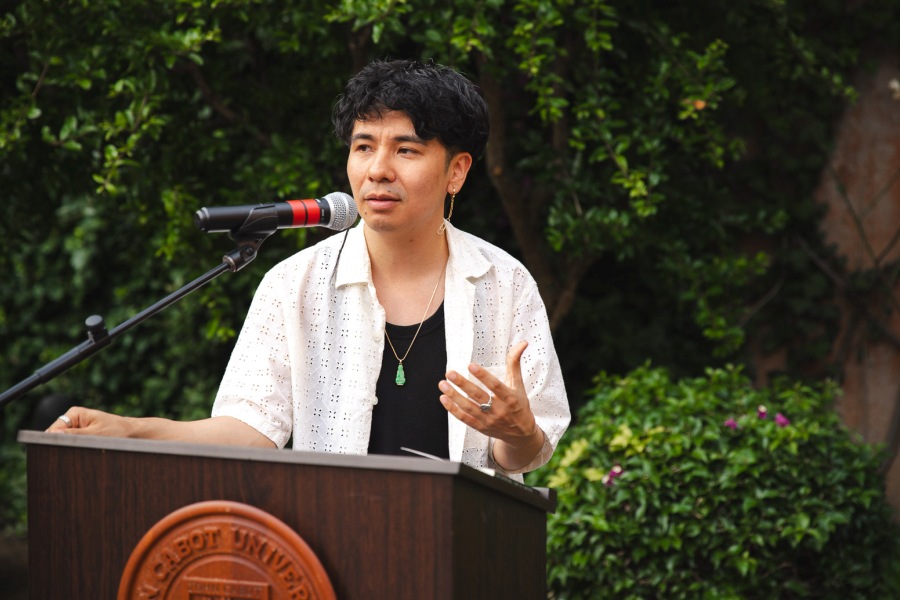What If AI Became Less Racist Than Its Masters? JCU Welcomes Charles Tonderai Mudede
John Cabot University’s Department of Communication and Media Studies welcomed Zimbabwean American writer, filmmaker, and cultural critic Charles Tonderai Mudede for a talk entitled “What If AI Became Less Racist Than Its Masters,” on March 12, 2024. The talk was part of the Spring 2024 edition of the Digital Delights and Disturbances (DDD) lecture series, which has been dubbed “Decolonize! Digital Delights & Disturbances,” and features a journey through technology with a decolonial and anticolonial gaze, weaving through the intricate narratives of race, gender, and our planet’s wellbeing.

The year’s series is in collaboration with NERO magazine. In addition, all the DDD events from now on will be organized in collaboration with CRiTT (Centro Tecnoculture Transnazionali), a new interuniversity center that has been launched in collaboration with The University of Naples “L’Orientale”, Ca’ Foscari University of Venice, and Scuola Normale Superiore in Florence.
On February 7, Scientific American published a story with the headline “Even ChatGPT Says ChatGPT Is Racially Biased.” This is not surprising because AI can only reflect, as the article’s author Craig Piers points out, the information provided by a society, and that the bulk of this information will represent the views, limitations, and investments of a society’s dominant group. In the case of the U.S., this group happens to be white Americans. Craig Piers, who is a clinical psychologist, discovered that ChatGPT wasn’t ignorant of the source of its bias. It knew “that its training material—the language we humans use every day—was to blame.”
Mudede presented the idea of AI exceeding human limitations. “Would the realization of this kind of AI be permitted? An AI that doesn’t reproduce the social forms, particularly those associated with racism, that have concentrated so much power and wealth in a few hands?” he asked. The 1983 song “Clear” by the founders of Detroit techno, Cybotron, points in this direction. So does Octavia Butler’s Afrofuturist classic Parable of the Talents. And, curiously enough, the Hollywood movie Eagle Eye (2008) presents an AI that’s far less racist than its makers as the ultimate enemy. His talk explored the possibility of a racially “clear” AI and the challenges it might face.
Charles Tonderai Mudede is a Zimbabwean American cultural critic, urbanist, filmmaker, college lecturer, and writer. He is Senior Staff Writer at The Stranger, lecturer at Cornish College of the Arts, and has collaborated with director Robinson Devor on three films, two of which (Police Beat and Zoo), premiered at the Sundance Film Festival, and one of which (Zoo) was screened at the Cannes Film Festival. Police Beat is now part of the permanent collection of The Museum of Modern Art (MoMA). Mudede, whose essays regularly appear in e-Flux, C-theory, and Tank Magazine, is also the director of Thin Skin (2023).





